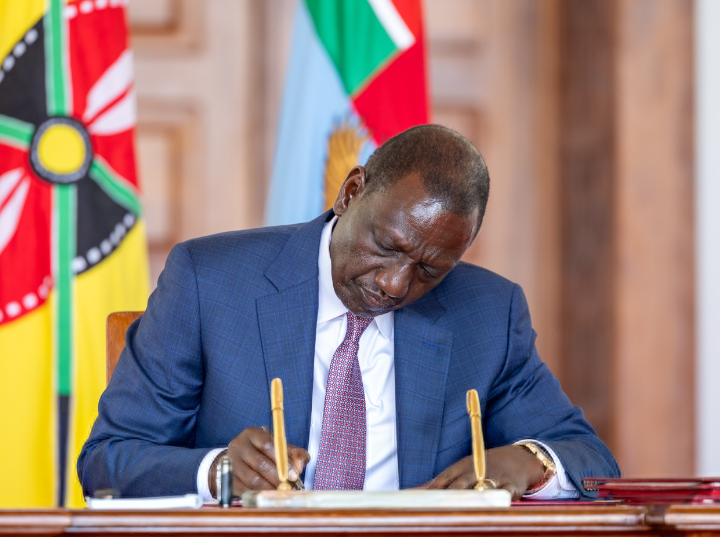Ruto signs Finance Bill 2025 into law, ushering in new tax changes

President William Ruto on Thursday, June 26, 2025, signed the Finance Bill of 2025 into law at the State House in Nairobi.
The bill, which was passed by the National Assembly on June 19, 2025, proposed a raft of amendments in the Income Tax Act, Value Added Tax Act, Tax Procedures Act, Miscellaneous Fees and Levies Act, Stamp Duty Act, and the Excise Duty Act.
One significant proposal under the Income Tax Act is the introduction of a five-year cap on carrying forward tax losses. Previously, taxpayers could carry forward losses indefinitely, providing a long-term buffer against future profits.
Changes to expect
Under the Value Added Tax Act, a notable change is the requirement for all supplies, including exempt ones, to be documented with a tax invoice. This expands the scope of invoicing obligations, requiring businesses to standardise their systems for both taxable and exempt supplies.
Additionally, the Bill mandates employers to automatically apply all applicable reliefs, deductions, and exemptions when computing employee Pay As You Earn (PAYE), aiming for greater accuracy and potentially improving employees’ take-home pay by ensuring upfront application of benefits.
“This provision will ensure that employees receive their full tax benefits without needing to make separate claims, improving compliance and fairness in the tax system,” Kuria Kimani, the Chairperson of the Departmental Committee on Finance and National Planning, said.

Finance Bill 2025 also introduces changes within the Excise Duty Act and the Miscellaneous Fees and Levies Act. Notably, the Bill replaces the Digital Assets Tax with a 5% excise duty on transaction fees paid to virtual asset providers, and introduces a 10% excise duty on virtual asset service fees, aiming to stimulate the digital economy.
Digital taxes
Similarly, there are also amendments impacting certain goods and services, including a five per cent excise duty on deposits into betting, gaming, and lottery wallets, reflecting a broader effort to expand the tax net and generate revenue from emerging sectors.
The signing ceremony was witnessed by the State House staff as well as representatives from Parliament, who included speaker Moses Wetang’ula, Majority leader Kimani Ichung’wah, Minority leader Junet Mohamed, Budget and Appropriations Committee chairperson in the National Assembly, Samuel Atandi and Suba North MP Millie Odhiambo, among other leaders.
The 2025 Finance Act is expected to broaden the tax base as well as streamline the revenue collection mechanism, given that the previous bill of 2024 was rejected after an acrimonious passing in parliament, resulting in a revolt from the citizens.













